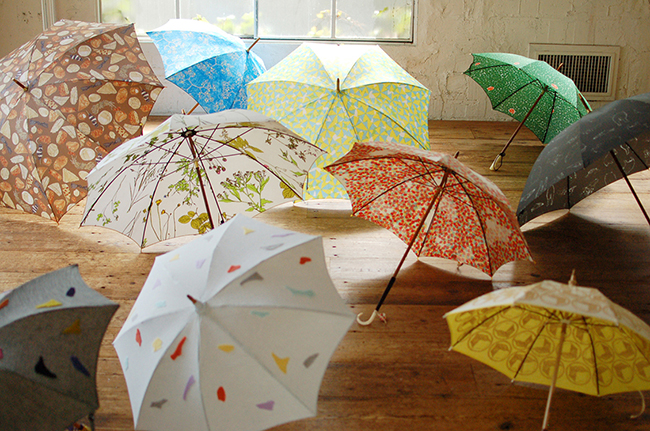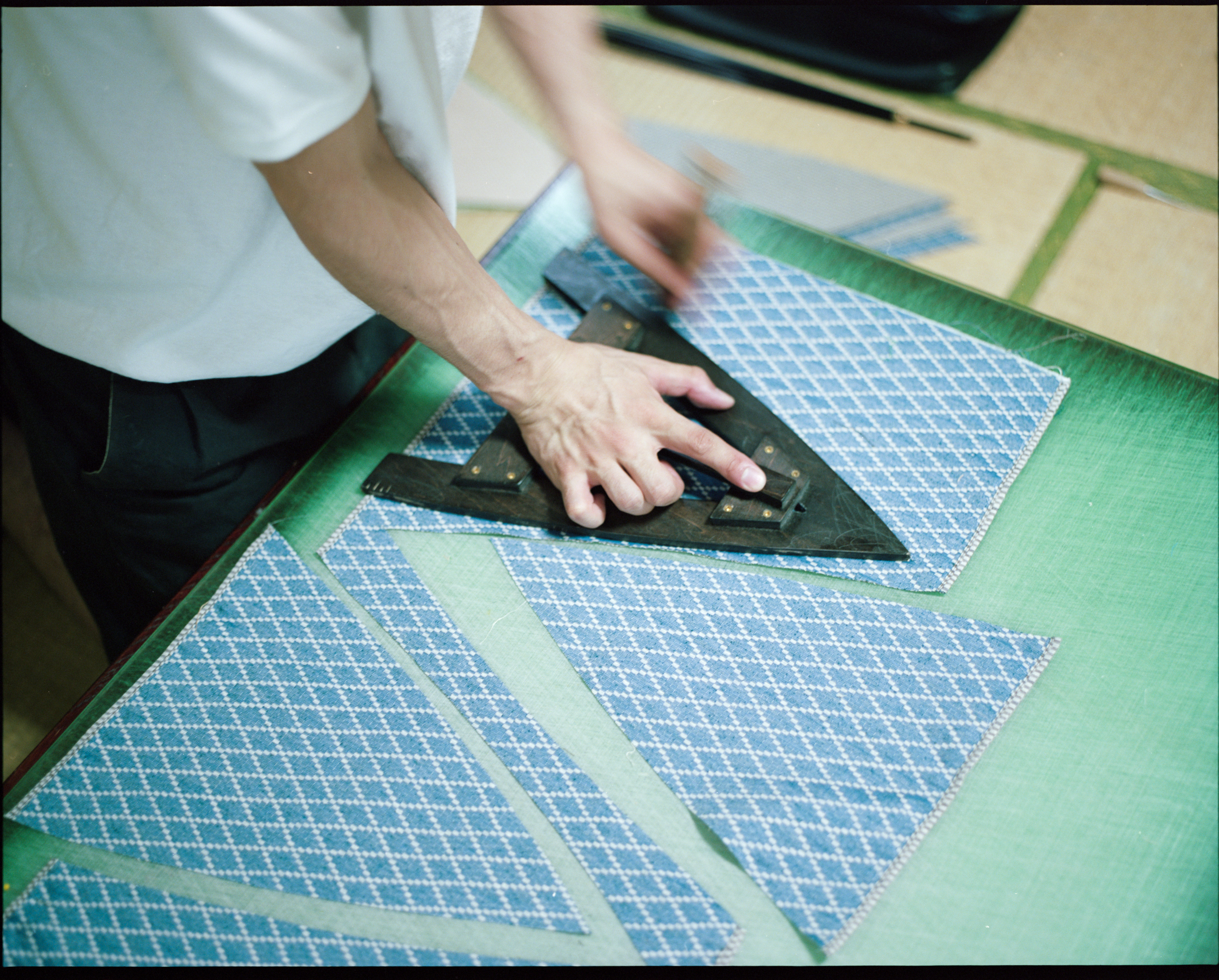Welcome to our ‘spiral market selection’ interview series, where we look at living from the viewpoint of artists and creators engaged in craftsmanship for daily life. For our ninth interview, we spoke with Yoshihisa Iida from Iida Kasaten, where every umbrella and parasol is handmade from original textiles designed in-house.

──The thrill when the fabric pops open
My shop really just came about. I didn’t actually plan to start a brand or open an umbrella shop. We were making textiles at university and everyone was making them into yukata casual kimonos or turning them into decorative tapestries. I was doing the same sort of thing when I realized how much I love that moment when closed, unseen fabric all of a sudden pops open. That was my very first inspiration for making umbrellas.
At the time there was no real connection between textile design and umbrellas and I ran with my instinct of what kind of textiles would make attractive umbrellas. The result was an umbrella like no other, and I thought, if I have never seen an umbrella like this, does that mean there has never in the world been an umbrella like this?
Our textiles-inspired umbrella-making begins by designing textiles with original illustrations. They are then produced in a factory after which every umbrella is put together by hand in our studio. We also collaborate with artists from totally different fields from time to time. For example, a woodworker friend of mine made a new kind of umbrella handle for me and my customers loved it. I’m constantly thinking about convenience and whether it’s easy to hold, so it’s a style I’d never have come up with myself, but therein lies the joy of collaboration.

──Making work from nature
Ironically, I don’t use umbrellas much myself, which I think allows me to take a more objective stance. I observe umbrellas as people walk along the street and think about how best to make them.
In recent years, our Iida Kasaten products have increasingly been associated with fashion items, like fancy bags, hats and shoes. But those are actually luxury items whereas an umbrella is more of a necessity or utility item, don’t you think? Of course, some of our customers are looking for an umbrella as a fashion item, but there are many more who don’t think that way. That’s why the handmade umbrellas made by the craftsmen at Iida Kasaten are designed as practical everyday items that people can enjoy using.
I make new discoveries all the time from the comments customers make: “I love going out on rainy days now”, and “the rain sounds beautiful”. I think everyone asks themselves what the meaning of their work is, and it really fills me with delight to know that our umbrellas play a part in bringing joy to people’s lives.
Rain falls and the sun shines – it’s these ubiquitous, natural phenomena that I make the basis for my work, and I realize how much fun that is for me.
──Work I can be proud of
The work of a craftsman cannot be sustained without customers who appreciate the finished products, and I’m very aware that my design business depends on that relationship.
Just the other day I received notification that a factory that manufactures parts for folding umbrellas would be closing down. This is probably true in any field, but I realized there is nothing I can do to make those parts, and in fact, that these people are irreplaceable. If I take the easy way out and just order cheap parts from overseas, those skills will totally disappear, so it’s really important to me to choose my materials carefully and engage in work that I can be proud of. It’s not like I can change the world, but if more people can realise that giving up on something may mean the end of it, little by little the situation may change, and at least we can maintain some of those skills and industries.
It’s perhaps in their subconscious, but I really believe that individuals who choose Iida Kasaten umbrellas do so because they appreciate the craftsmanship behind it. Even if they first picked up one of our umbrellas simply because they thought it looked lovely, I think they can see the work required. I especially feel that customers who come to our exhibitions share our mindset, therefore I’m constantly thinking about how to respond to their needs, and what I can do in the future.
Interview and editing by Spiral
Umbrellas and parasols are all individually handmade, starting with the production of unique textiles. Without a physical store, orders are taken at events held around Japan. In addition to umbrellas, Iida Kasaten also create many varieties of fabric and paper accessories made from original textiles. They also produce umbrellas for movie and stage sets, collaborate with other industries, and participate in all kinds of activities related to umbrellas.
Instagram ID: iidakasaten
http://iida-kasaten.jp

Venue:Spiral Market
*This event has ended.





